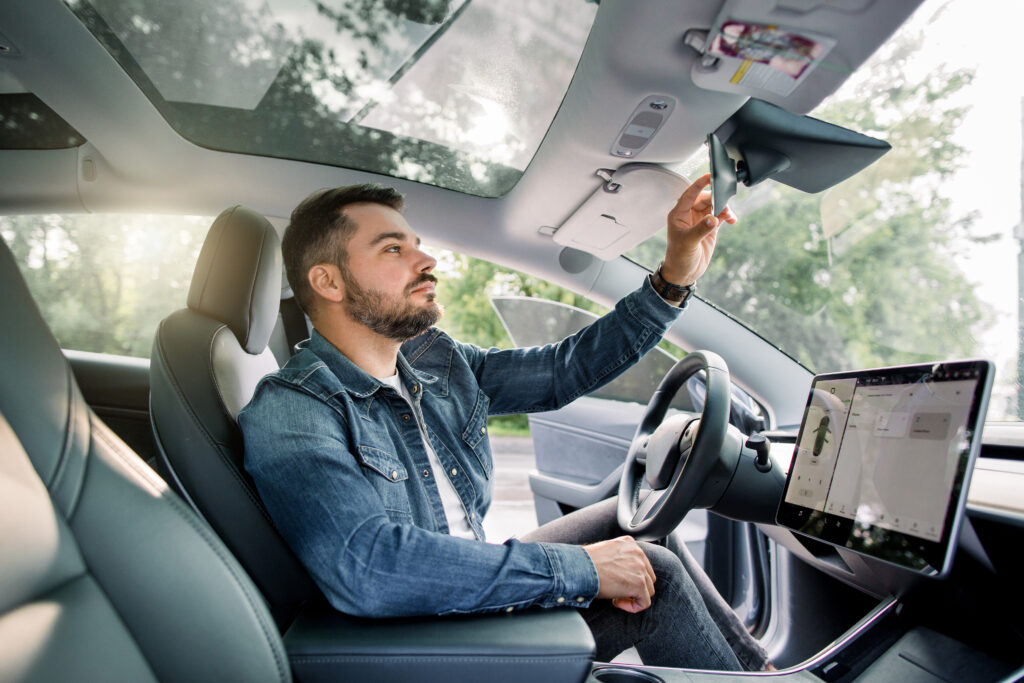In 2023, millennials are between the ages of 27 and 42 and in their prime car-buying years. Unlike earlier generations, most are happy to spend as little time as possible in the showroom. So what do millennials look for in a car, and more importantly, how can dealers reach and engage them?

What Millenials Want in a Car
The U.S. population of millennials is over 72 million, and in 2020, they purchased more new cars than any other age group, comprising 32% of all new car sales. This sizable section of the economy prioritizes price, fuel efficiency, and safety when shopping for a new vehicle. The style of the car, its size, technology, features, speed, and the brand’s reputation follow behind those top three.
As younger car buyers, it’s natural that more millennials would be budget-conscious, and every trend has notable exceptions. Some millennial millionaires may take a different approach. It will be interesting to see if these priorities change as millennials age and have more driving experience and disposable income. However, price, fuel efficiency, and safety speak to them for now.
This is evidenced by the ten most popular cars among millennials in 2021, which are:
- Honda Accord (3.87% of millennials drive a Honda Accord)
- Honda Civic (3.85%)
- Nissan Altima (3.32%)
- Toyota Camry (3.23%)
- Toyota Corolla (2.80%)
- Chevrolet Impala (2.04%)
- Chevrolet Malibu (1.94%)
- Ford Focus (1.91%)
- Ford F-Series Pickup (1.65%)
- Hyundai Elantra (1.57%)
In terms of successfully marketing to younger car buyers, this means slick ads that emphasize status, style, and the emotional appeal of a car won’t hit the sweet spot for millennial buyers. They want to hear about the great price, safety, and how much they will save on fuel before they are interested in the other features of the automobile.
The Millennial Approach to Car Buying
Millennials grew up in the digital age. They do some or all of their pre-purchase research online and expect fast and accessible mobile access. Millennials are more likely than older shoppers to use their mobile phones to research brands and models, including getting pricing, browsing classified listings, locating nearby dealers, comparing specs, and reading reviews.
The steady rise of online car dealers, such as Cars.com, Shift, Vroom, and Carvana — with more emerging each year — is the result of this trend. If your mobile website is slow to load, non-responsive, or not optimized for some shopping activities, you will lose millennial customers.
53% of consumers will navigate away from a website that takes more than three seconds to load. A friction-free experience is a basic expectation for millennial shoppers.
8 Effective Marketing Strategies to Reach and Engage Millennials
Millennials are confident in researching makes and models and even shopping online. Like many shoppers in the digital marketing age, they tend to doubt advertisements and a heavy sales pitch in favor of brands that build trust, display authenticity, and offer valuable information.
Here are eight effective marketing strategies that are effective with millennial car shoppers:
1. Don’t Be Sales-y
A heavy sales approach will turn most millennials away. With ads on television, radio, websites, mobile phones, apps, social media platforms, and everywhere else they turn, this generation has been bombarded by advertising messages. Cutting through the noise requires a more relational approach.
Instead of pressing for the sale, design your digital marketing and social media advertising campaigns to provide information, offer value, tell stories, provide testimonials, emphasize the product benefits, and give shoppers opportunities to investigate and personalize their car choices.
2. Strengthen Your Online Presence
TV, radio, and billboards used to be the biggest games in town, but millennials spend significant time online. If you want to connect with millennials, a robust online presence is essential.
From customer service to browsing car models, easy online access is the key to reaching and engaging millennial shoppers. Developing your social media presence, including video marketing, meet millennials where they are.
Make sure it’s easy to contact your business through various channels, including chat, email, and phone. When a shopper does want to reach you, they can use the medium that meets the complexity of their question and their preferred channel.
3. Provide Valuable Information, but Do It Quickly
It’s true that millennials prefer to research online. But it’s also true that they tend to shift from one activity to another rather than take a single, deep, and focused dive. Develop your content to satisfy their curiosity and attention span with quick, bite-sized, engaging videos, blogs, and posts.
If you capture their attention and interest, they will continue the investigation and dig into the details. Creating content for millennials requires balancing delivering the information they want and need, including product benefits, within a format and timeframe they will reliably consume.
4. Back Up Your Facts
If you present a fact about your product, you can expect millennials to verify that information from other sources. Since building trust is a critical part of the sales process, you want to ensure that any facts you present are verifiable.
Millennials approach communications from any business with a layer of skepticism. By being transparent, consistent, truthful, and authentic, you overcome that skepticism to build trust and, hopefully, some raving fans.
Another way to approach the millennials’ need to learn is a robust Q&A section or access to live events, videos, or social posts that answer their questions. These would be answers regarding the products, the millennial customer’s pain points, and possibly the company itself.
5. High-Tech is High Interest
While the top three factors for car-shopping millennials are price, fuel efficiency, and safety, they are part of a high-tech generation. They will pay more for vehicles that seamlessly integrate into their digital lifestyles.
Car tech that millennials prioritize includes:
- Improved software in a vehicle (89%)
- Touchscreen interfaces (73%)
- Smartphone applications (72%)
- In-dash technology (59%)
Emphasizing these features in your discovery advertising or social media advertising can grab a millennial’s attention.

6. Appeal to Their Values
While values vary by location, millennials generally expect brands to be inclusive. You may have noticed that the marketing efforts of many major brands have started to feature more people of color, people with disabilities, or with different gender or sexual orientations. Marketing that realistically captures the diversity that millennials experience in the real world reflects their values of inclusivity and social equity.
In a 2019 survey of 3000 U.S. consumers by The Female Quotient, Google, and Ipsos, 77% of millennials reported taking action after seeing an ad they considered diverse or inclusive. This is a relatively small sample size, but the results are compelling.
A positive environmental message and a proactive approach to social issues can also appeal to the emotional side of millennials. These messages can be particularly empowering if they evoke an emotional response — from laughter to tears.
If social activism or inclusivity doesn’t make sense for your brand or local market, you can still appeal to millennials’ emotional side through heart-touching stories or side-splitting jokes.
7. Build Trust and Give Valuable Guidance
Another powerful entry point with the millennial market is positioning your brand as a counselor, source of valuable information, or advisor. Help them by delivering real, actionable guidance about the cars you sell and their lives.
For example, consider an article about car financing options that give a neutral, objective look at their options and how they can save the most money over the life of a car loan. Another approach is to provide expert advice on how to care for and maintain the interior, exterior, and engine of the vehicles you sell.
Acknowledge their problems and questions about purchasing and financing a car, and help them solve and answer them. This develops a relationship between your brand and the millennial, which can translate into loyalty over a lifetime.
8. Help Them Feel Like Smart and Successful Adults
As the younger generation is just emerging into adulthood, millennials are irritated with the typical stereotypes businesses and people tend to have about them. If your marketing even hints at assuming they are stupid, incapable, or entitled, they will be turned off and may resent your brand.
If you are not a millennial and remember how it felt when the older generation had negative assumptions about people your age, you can understand how important this perception can be. When you market to millennials, remove all preconceived notions and speak to the vibrant, intelligent, creative, capable adults they are becoming. Reinforce their strengths and capabilities while providing valuable, actionable guidance; they will keep returning for more.
Millennials Are the Next Big Market
Whether or not your dealership or automotive brand is ready to enter the digital marketing age, your biggest emerging market demands that you do. Millennials have just surpassed all other age groups and will continue to buy cars for decades to come. The generations that follow them are only more technology plugged in, so every effort your brand makes now to expand your digital marketing can pay off long term.
As experts in digital marketing with extensive experience helping automotive brands build their online presence and drive traffic to their websites, we are here to help. Feel free to connect with our team and find out what we can do for your business.



